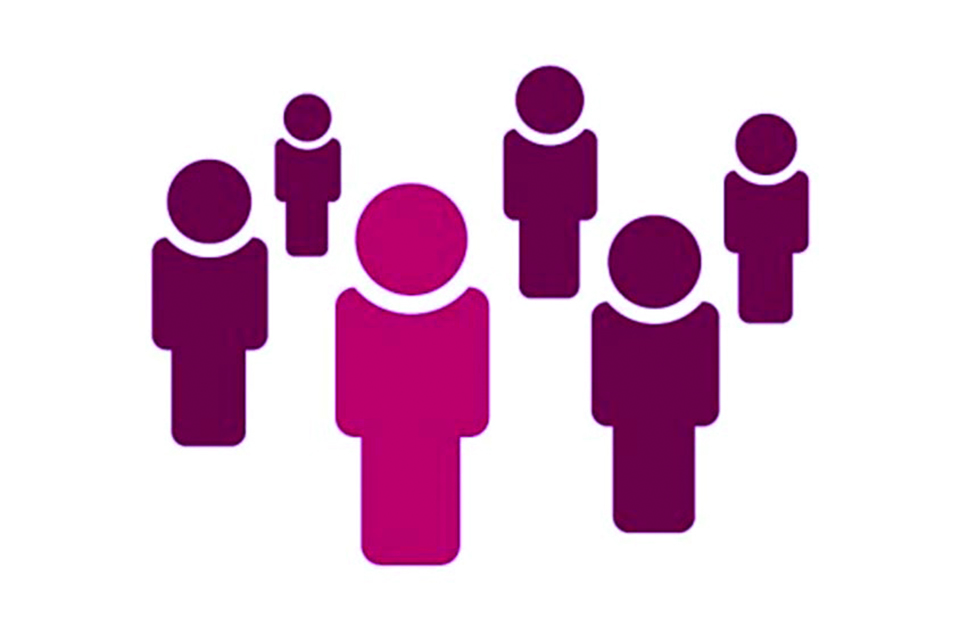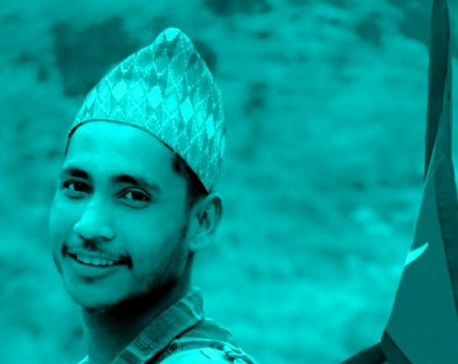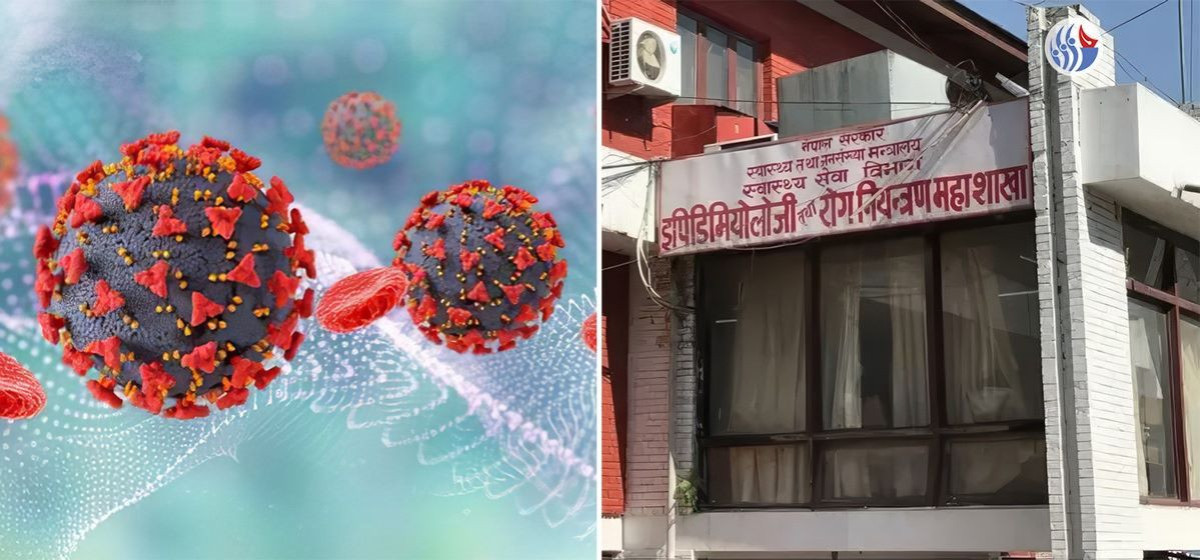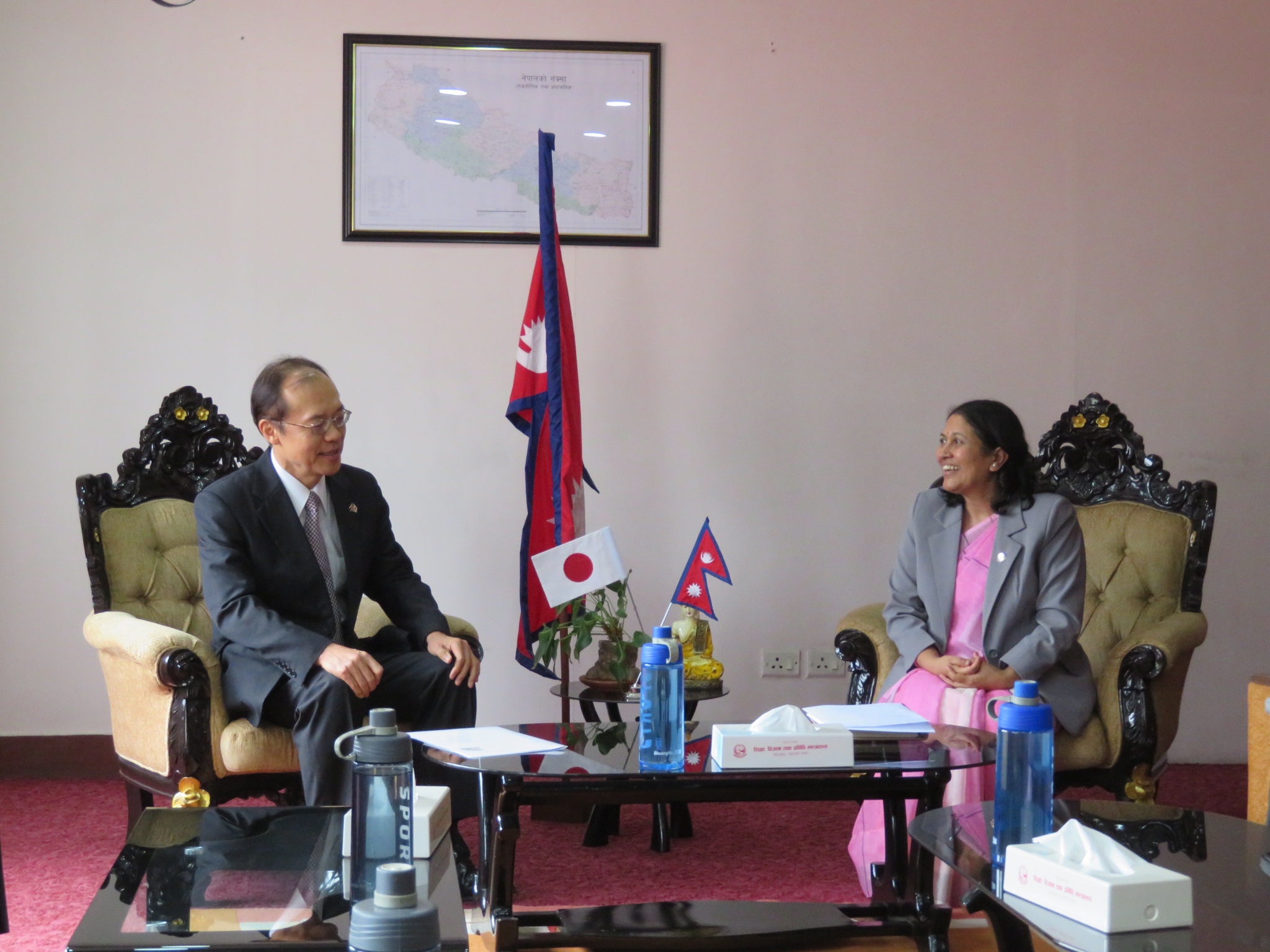
OR


Simone Galimberti
Simone Galimberti is the Co-Founder of ENGAGE, an NGO partnering with youths to promote social inclusion in Nepal.simone_engage@yahoo.com
Some practical ideas on how to change the conversation on social inclusion and empowerment in the country
The quest for equity - the foundation of a more just, fair and equal society - is often talked about and discussed but rarely such debates lead to a meaningful impact on the grassroots.
Only days ago we read the news that locally-elected female representatives belonging to the Dalit community have been systematically excluded and sidelined from any substantial decision-making in Achham - a situation that unfortunately is not surprising nor shocking and applicable to so many other parts of a nation where women’s political participation has always been regarded as tokenism.
At the same time, if you belong to any other discriminated group, sexual minorities, persons living with disabilities or any other, the patterns of political and societal discriminations continue to be entrenched in the people’s mindsets and behaviors.
Within this gloomy scenario and the mounting difficulties to create a more inclusive nation, here are some ideas that perhaps could be piloted and, if effective, scaled up.
Because it is one country with a pluralistic and diverse society and one national social inclusion challenge with a myriad of distinguished features, the propositions below can be used to elevate the fight against discrimination in a concerted and coordinated fashion, bringing up self-empowering measures that could help uplift not only one particular section but also potentially all disadvantaged groups through all-inclusive partnerships.
Fellowship
Imagine a diverse leadership cohort of youth from different marginalized groups joining a unique personal and professional development program together with peers from less deprived backgrounds. They would co-design under expert tutors their own learning modules following the example of the Centre for Environment and Development Studies (CEMUS), “a student-initiated, transdisciplinary centre” at Uppsala University and Swedish University of Agricultural Sciences.
Green development and sustainability would play a big part in this bottom-up curriculum together with other topics related to social and economic development, including human rights - all from a very pragmatic perspective where new knowledge is examined, discussed and then applied.
A module on values-based leadership inspired by the best thinkers and authors will provide the foundation bloc for the Fellows to rise to their potentials, inquiring and investigating their areas of interest, driven by curiosity and humility - two qualities that are more and more valued within the leadership industry.
This Fellowship would be a platform promoting a new type of public policies, one focused on localizing the Sustainable Development Goals (SDGs) and geared toward the cross-pollination of ideas from different but interlinked subjects.
In addition, in order to offer global and local insights at the same time, participants would not only have access to the work of the most authoritative and prominent contemporary authors from around the world but also will be exposed to local activists and experts.
To make the program pragmatic and practical at the same time, issue-based “challenges” would be decided through consensus and deliberation, with diverse teams being created to discuss and propose solutions while, at the same time, each Fellow will have the opportunity to dive in and zoom in an area of interest that will be explored with the support of coaches and experts focused on asking the right probing questions.
There will be theoretical and practical learning with the participants focused on the big pictures through a common effort but also determined to narrow down their personal focus in order to come up with some new ideas.
As part of the learning process, the participants will have to work hard to find themselves internships that would fit their personal interests and then they will have to come up with micro projects that will be implemented by the end of the Fellowship.
The Fellowship would allow disadvantaged youths to work with other peers, helping them to enhance their strengths with a quantum leap in terms of knowledge, expertise and most importantly, self-confidence.
SDGs leadership micro forums
Imagine local youths from marginalized groups from across the country working alongside with other peers to discuss social issues anchored on one or multiple SDGs, bringing forward their perspectives that often remain overshadowed.
Such diverse and participatory forums could become advisory panels to the elected officers, helping provide a tiny block to the ambitious project set by the United Nations Secretary General to build a new social contract.
These events would be action-oriented: pick one problem affecting one local community, explore its linkages with other local grievances, using a bit of traditional participatory tools with bits of design thinking and here we are with prototypes of possible solutions.
Here social inclusion, gender equality and self-empowerment would directly find a direct application on the ground because youths from the disadvantaged groups will bring their unique perspectives, their unique stories to solve local problems.
A national mentoring mission
I have written about this in the past but perhaps it’s worthy again to pick up this idea once more. Vulnerable youths need guidance and positive, developmental relationships and managers, elected officers, artists from local and national levels could provide them the indispensable support to help them breakthrough. Common guidelines and training would be developed to create a common understanding about mentorship for hundreds if not thousands of mentors to become agents of positive change for their mentees.
Women’s academy for public policy
This could be a breakthrough model for a continuous capacity building and platform creation for the current and aspiring women politicians. Several initiatives of similar nature and ambitions were rolled out in the past but were always short-term. More financial support should be to those activists engaged in creating a level playing field for women in politics.
The leadership for “underdogs” academy
I know many “underdogs” and there are many more out there. Their potential is wasted and their aspirations and dreams are bulldozed by systematic inequalities on a daily basis.
The academy could become the platform to give a voice and power to all those who want to play in the “arena” but are excluded from it.
Short- and long-term leadership labs would be co-designed by the participants, book readings would be organized, opinion pieces would be forged, debates would be facilitated.
The above-mentioned propositions are not just wishful but doable ideas focused on helping Nepal successfully graduate not just to a lower middle-income country but to a nation of high but inclusive ambitions.
(Galimberti is the Co-Founder of ENGAGE, an NGO partnering with youths to promote social inclusion in Nepal. He can be reached at simone_engage@yahoo.com)
You May Like This

Investing in youth
Big employment generating programs must be carefully evaluated while small innovative pilots should be supported. ... Read More...

Time for national awakening
Murder of Nabaraj BK and a group of his friends all belonging to the Dalit community, a gruesome act of... Read More...

Out of this, a better world
Over the last month we are seeing how a crisis like the ongoing lockdown to prevent the spread of Covid-19... Read More...











Just In
- Nepal at high risk of Chandipura virus
- Japanese envoy calls on Minister Bhattarai, discusses further enhancing exchange through education between Japan and Nepal
- Heavy rainfall likely in Bagmati and Sudurpaschim provinces
- Bangladesh protest leaders taken from hospital by police
- Challenges Confronting the New Coalition
- NRB introduces cautiously flexible measures to address ongoing slowdown in various economic sectors
- Forced Covid-19 cremations: is it too late for redemption?
- NRB to provide collateral-free loans to foreign employment seekers







Leave A Comment